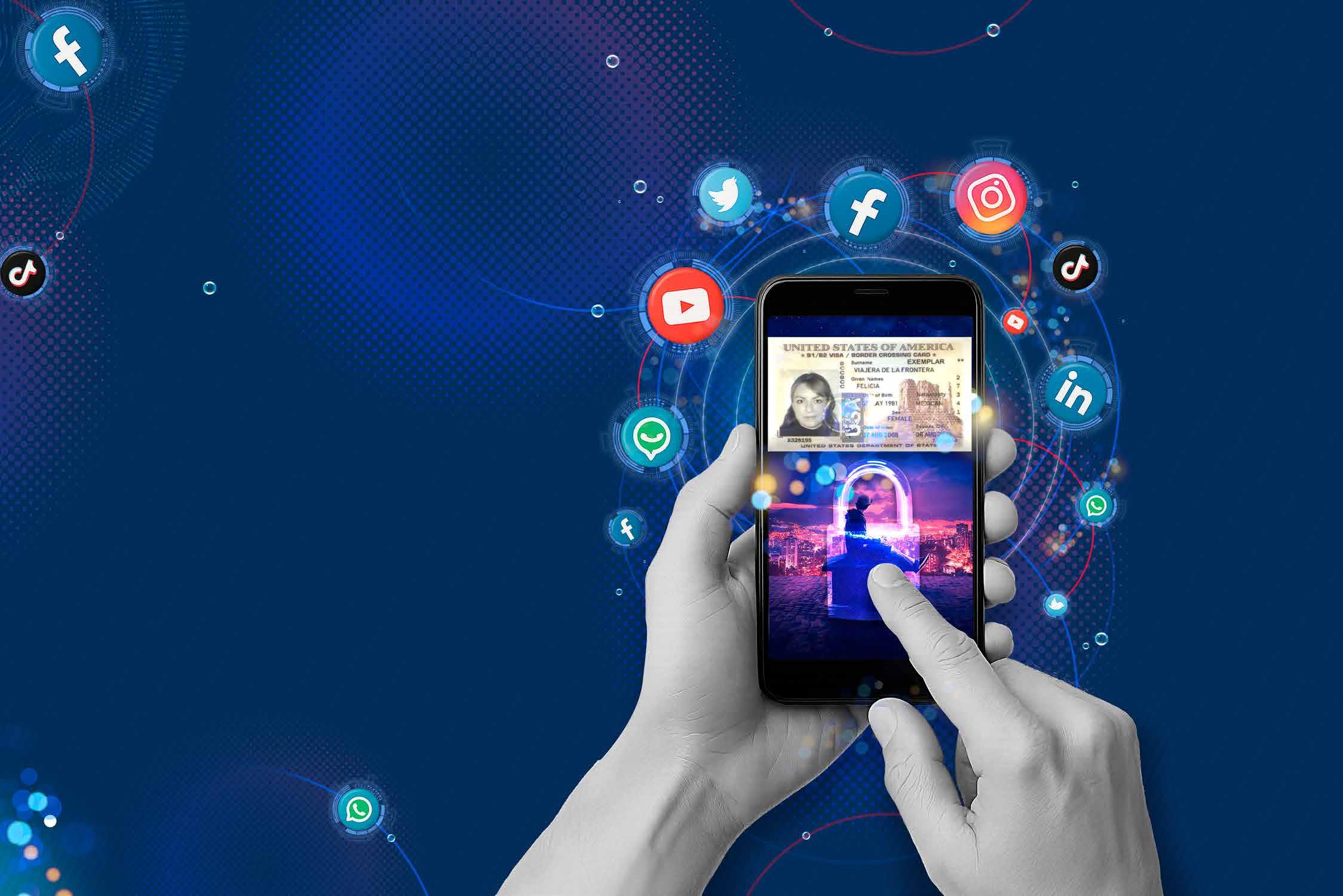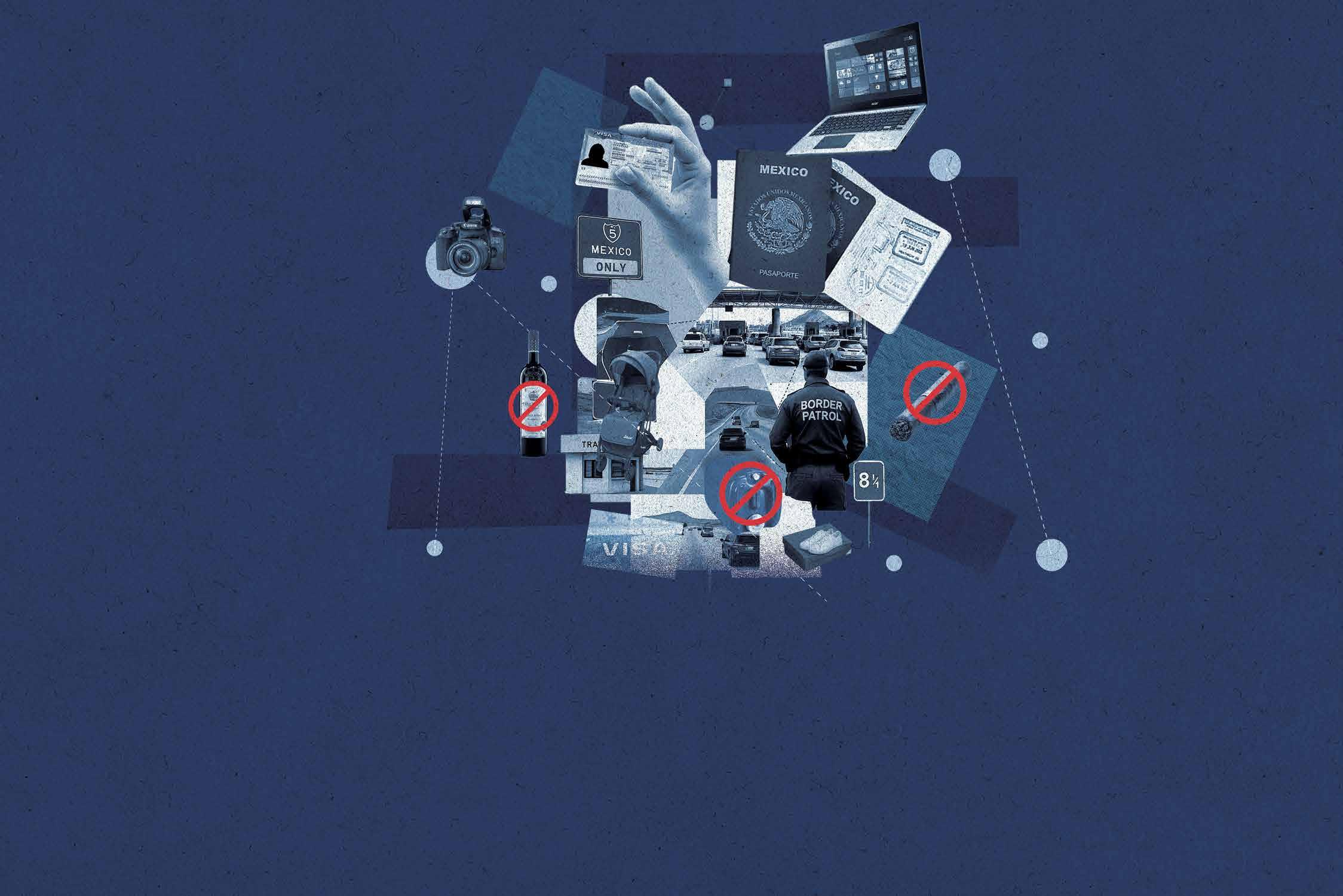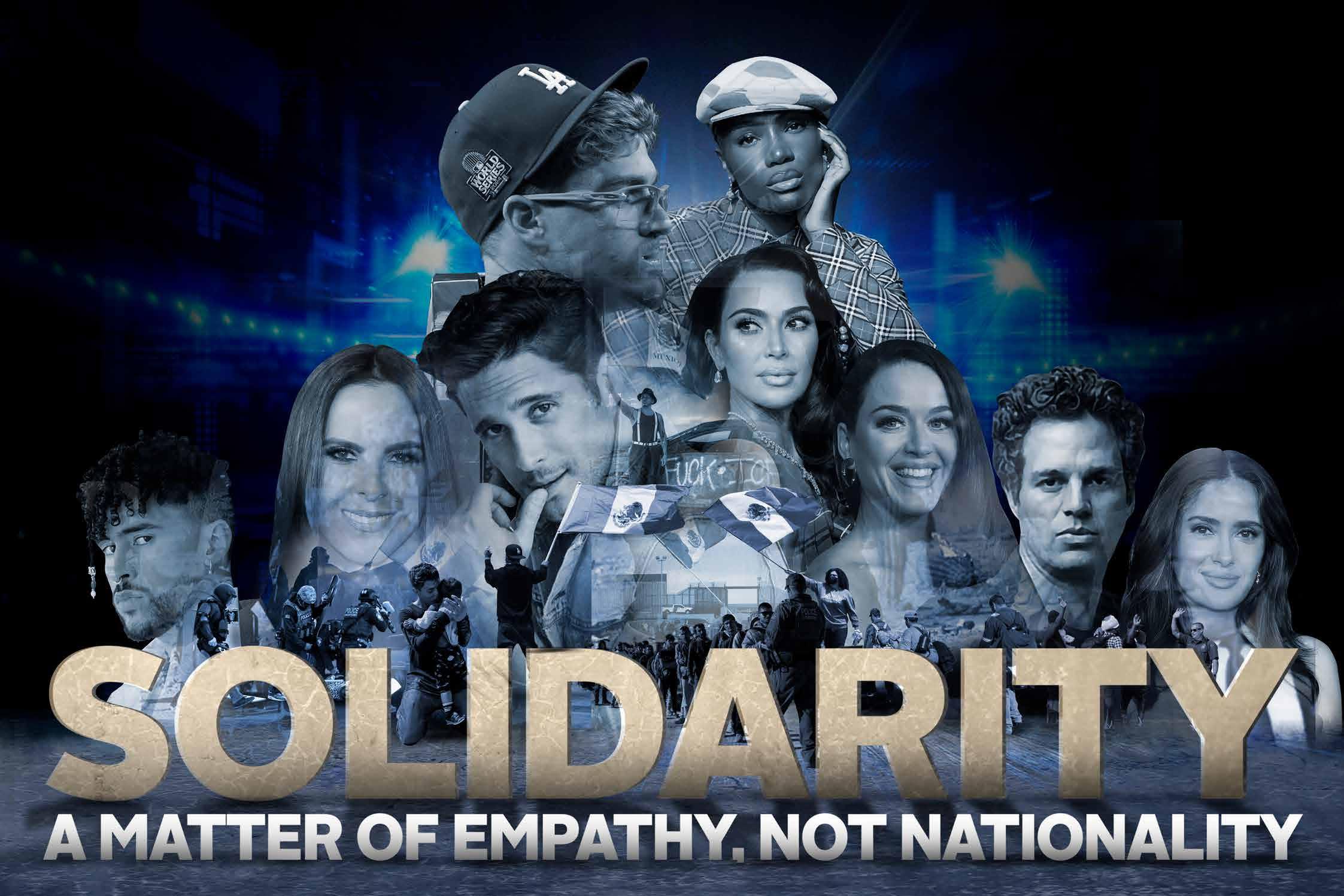

More Human Intelligence for a Better AI
The Responsibility Is A Shared Task



Your AI Assistant Wants Everything (And You’re Going to Give It)
HERE’S A FUN FACT THAT SHOULD KEEP YOU UP AT NIGHT: YOUR PHONE ALREADY KNOWS MORE ABOUT YOU THAN YOU DO.
Think about it. You’ve forgotten what you searched for at 3am during that health scare last year. Your phone hasn’t. That embarrassing photo you thought you deleted? It’s floating in a cloud backup somewhere. Your digital footprint remembers everything with perfect, permanent clarity. Now imagine handing all of that to a single AI assistant that not only remembers everything but can analyze patterns you didn’t even know existed. Welcome to the next five years of your life.
YOUR DATA’S ACCIDENTAL BODYGUARD
Right now, this chaos is our accidental bodyguard. Your banking app can’t talk to your fitness tracker. Medical records and TikTok addiction exist in different universes. These data silos make assembling the complete picture of “you” harder. A breach in one doesn’t mean a breach in all. AI agents are about to shatter these walls. And you’re going to let them.
The pitch will be irresistible: Give us total access, get a superintelligent assistant. Banking? Check. Email? Of course. Photos? Sure. Health records? Why not. Work files? Absolutely. Cal-
endar? It needs to know your schedule.
Each permission will make perfect sense in isolation. Together? You’ve just created a master key to your entire existence.
Here’s what’s coming: an AI that will unify all of this into one seamless, convenient, terrifyingly comprehensive system. One AI with all access, to find patterns, and in one cloud, bind them.
THE TRADE-OFF OUR BRAINS CAN’T CALCULATE
Evolution didn’t prepare us for this bargain. The human brain literally cannot grasp the scale of what we’re about to hand over. Every photo, analyzed. Every message, indexed. Every purchase, pattern-matched. Every movement, mapped. Not just yesterday or today, but everything, always, forever accessible to one intelligence that never forgets.
Evolution wired you for immediate rewards over long-term consequences. That’s why you’ll eat the donut, make that impulsive purchase, and why, when offered an AI assistant that can handle your entire digital life, you’ll say yes. Even with the best intentions, we’re about to create a single point of failure for our entire digital existence.
You’re already doing it. Meta knows your face from every angle, your relationships, and who
you’re texting at 2am. Google has your searches, emails, location history. Netflix knows what you watch and predicts what’s next. But here’s the thing: it’s about to get exponentially worse. First, those protective silos are about to shatter; AI will see across your banking, medical records, and work files simultaneously. Second, and more terrifying: AI won’t just watch and predict anymore. It’ll act. Transfer money, schedule appointments, send emails as you. Real actions with real consequences, all from one access point.
THE FIVE DATA GOLDMINES YOU’RE ABOUT TO HAND OVER Let’s get specific about what “everything” actually means. Your digital life breaks down into at least five interconnected vaults, each containing data more valuable than you probably realize:
FINANCIAL DNA: Not just your balance, but your entire relationship with money. Every impulse purchase, late bill, salary deposit. It sees you order takeout every time you promise to cook. It knows your real financial health, not the version you tell friends.
BODY’S BINARY: Health data is gold on the dark web, worth more than credit card numbers. Your fitness tracker knows when you actually sleep. Your search history reveals health anxieties you haven’t told your doctor.
PROFESSIONAL PERSONA: Those “sick days” when your location showed you at the beach. The job searches from your work computer. When AI controls both spheres, your professional and personal lives merge into one transparent whole.
SOCIAL FINGERPRINT: Every relationship, weighted by interaction frequency. Every person you’ve stalked online. Every group chat you’ve muted. AI doesn’t just see who you know but who matters based on response times, emoji usage, and 2am conversation patterns. It knows your real social graph, not your LinkedIn fantasy.

Worse, they can act as you. Not just read emails but send them. Not just see your bank balance but move money. Not just read messages but send them to your boss, your ex, your mother. They have the context to make it believable. They know how you write, your inside jokes, your patterns. This isn’t identity theft. This is identity assumption. Unlike a stolen credit card you can cancel, once an AI with total access is compromised, the damage ripples through every aspect of your existence simultaneously.
THE PRICE OF CONVENIENCE
Here’s the deal you’re about to make; the actual transaction happening here.
You give: Complete access to your digital life. Every search, purchase, message, photo, location, heartbeat, therapy session, work document, and fleeting thought you’ve ever digitized. You get: A digital assistant that never forgets your mom’s birthday or your dentist appointment. That plans and books your entire vacation while you sleep. That drafts work presentations in your voice. That notices health patterns and books doctor appointments with detailed trends from your fitness tracker.
The convenience is real. The benefits are genuine. And yes, you’re going to make this trade; we all are. The question isn’t whether you’ll use AI assistants, but whether you’ll be a passive participant or an informed user.
LIVING SMART IN THE AI AGE
The future isn't about avoiding AI; it's about using it without losing yourself in the process
UNFILTERED SELF: The searches you’d die before sharing. The photos you thought you deleted. The notes app confessions. The browsing history that reveals who you really are at 3am. According to Harvard Business Review, therapy and companionship are now the #1 use case for AI. People are literally feeding their deepest insecurities into these systems.
That’s your entire life, readable by an ever-smarter machine.
THE ONE PASSWORD TO RULE THEM ALL
Here’s what happens when you hand over the keys to everything, and you will.
Right now, if someone gets your Spotify password, they can play music on your dime.
Annoying, not life-destroying. Facebook hack?
Embarrassing messages. Bank breach? There are fraud protections, limits, ways to fight back.
But when one AI has access to everything?
Your AI gets compromised. Maybe it’s a script kiddie. Maybe it’s organized crime. Maybe it’s a court order, or just you choosing your dog’s name and birth year as your password. The how doesn’t matter when the result is the same.
They don’t just get one piece of your life. They get everything. Money, health records, private messages, work files, therapy sessions (remember, that’s the #1 use case now), location history, photos. Everything.
Here’s your playbook for the inevitable: Lock it down. If you’re still using “password123” or your birthday, stop reading and fix that now. Use a password manager to generate long, complex passwords. Turn on two-factor authentication everywhere. When one breach could expose your entire digital existence, that extra 10 seconds set up becomes your most critical defense. This isn’t paranoia; it’s the minimum viable security in an AI-integrated world. Audit regularly. Monthly, check what your AI knows about you. Revoke permissions you don’t need. Delete data you don’t want stored. Most won’t do this, but those who do will at least know the scope of what they’ve handed over. Know what you’re trading. You’re going to give it everything, so at least understand what “everything” means. The future isn’t about avoiding AI; it’s about using it without losing yourself in the process.
THE BOTTOM LINE
The AI convergence is happening whether you’re ready or not. Your choice isn’t between using AI assistants or living like a digital hermit. Your choice is between stumbling into this new world with default settings and walking in with intention. So here’s the deal: Use the AI. Let it make your life easier. But respect it like you’d respect any powerful tool.
In five years, the people who thrived will be the ones who learned to use these tools without being used by them. Who knew exactly what they were trading, negotiated the best terms, and understood that bad security habits with AI aren’t just risky anymore. They’re catastrophic. You’re about to hand over your entire digital existence to a single point of failure. The least you can do is make sure you’re not the weakest link in your own security chain.
The trade is inevitable. Whether you make it blindly or brilliantly is up to you.
*Senior Security Solutions Architect at Amazon Web Services
Luis E Pastor* LINKEDIN:
Cryptocurrencies represent a revolution in finance. Created in response to the 2008 global economic crisis, they have evolved into a phenomenon that is redefining the concept of money
BY:

A complex and fascinating aspect of the digital economy, cryptocurrencies are digital currencies that use cryptography—encrypted information only accessible with the correct key—to enable online financial transactions and create new money units. Most cryptocurrencies depend on blockchain technology, a decentralized database that acts as a public ledger. Each transaction is recorded in a block, which is then linked to others to form a chain. Each block contains multiple transactions, a timestamp, and a code connecting it to the previous block. Blockchain technology provides high security and resists external tampering. Unfortunately, operating these systems consumes vast amounts of energy, which, given ongoing climate concerns, is increasingly seen as a political issue.
Cryptocurrencies provide many benefits that positively impact the global economy and financial markets. These digital currencies are available to anyone with an internet connection, helping to reduce financial exclusion and allowing more people to access savings and investment services. Additionally, cryptocurrencies enable quick and efficient transactions, have lower fees than traditional banks, offer secure storage, support investment diversification, and make saving easier, among other key features.
Another major reason for their popularity is that cryptocurrencies are not controlled by any central bank or financial authority, which lessens government and banking influence over finance. Unsurprisingly, cryptocurrencies have become the currency of choice for illegal networks and the Dark Web, where they facilitate the sale of illicit goods. They have also been used in the context of armed conflicts and geopolitical disputes. For example, in the Ukraine war, Russia used cryptocurrencies to circumvent economic sanctions imposed by the United States and the European Union. Although cryptocurrencies offer benefits, they also pose significant risks. Their extreme volatility can cause rapid shifts in value within hours. This presents a major risk for investors, who could lose their assets overnight. The lack of both national and international regulation invites fraud, as demonstrated by the
A REVOLUTION IN GLOBAL FINANCE
ing cryptocurrency exchanges but had built a large business on risky foundations. On November 12, a $6 billion run on FTX occurred after Binance—the world’s largest crypto exchange—decided not to bail out its competitor. FTX declared bankruptcy, triggering a domino effect that crashed the crypto market. Bitcoin alone fell 22.18% in value within one week, closing at $16,492. This sharply contrasts with its all-time high of $67,526 in November 2021—representing a 75.57% loss. However, market volatility continues as of June 2025, and Bitcoin has surged again, now trading at $91,986. Even if cryptocurrencies are likely to become the primary method for financial transactions in the future—assuming they become more dependable—they still remain vulnerable to fraud and money laundering. While the decentralization of finance democratizes decision-making and encourages innovation, effective control mechanisms are needed to safeguard financial systems. By 2025, the global cryptocurrency market capitalization was $2.9 trillion, according to CoinMarketCap. The World Economic Forum (WEF) reports that $91 billion is traded daily. Meanwhile, Geneva’s Digital Watch (Digwatch) reports that illicit cryptocurrency transactions exceeded $24 billion in 2023. To make cryptocurrencies a dependable tool for secure, fast transactions, strong oversight from both national and international financial authorities is essential. Like many digital activities, cryptocurrencies urgently need regulation to build trust and confidence. International regulations on cryptocurrencies have advanced significantly in recent years, driven by their growing global adoption and concerns about consumer protection, fraud prevention, money laundering, and financial stability. In October 2024, the World Economic Forum in Davos published a report on global cryptocurrency regulations, highlighting that digital currencies are gaining momentum worldwide, and that clear, effective regulation is crucial for innovation, safety, and market stability. The report states that the most advanced regulations are in the European Union, the United Kingdom, Hong Kong, Japan, Singapore, Switzerland, the United Arab Emirates, and the United States. Cryptocurrencies are a double-edged sword. They are revolutionizing global financial markets by offering unmatched access and innovation. However, they also facilitate scams, fraud, money laundering, and other criminal acts, often shielded by the anonymity of digital transactions. The path to widespread adoption isn’t easy. Volatility, lack of regulation, and security risks are all crucial factors for anyone entering the cryptocurrency
Successfully navigating this new
and


ENTERS THE AGE OF SOCIAL MEDIA AND AI BUT AT WHAT COST?
Over the last decade, the U.S. government has embedded social media screening into its visa evaluation process, extending even to decisions on visa revocation.
BY: HIRAM CALVO*
What began as an experimental practice is now a widespread policy: since 2019, nearly every visa applicant—immigrant and non-immigrant alike—must submit their social media handles from the past five years as part of their application. This massive data collection effort, affecting roughly 14 million people annually, was formalized under the Trump administration as part of a broader strategy of “extreme vetting,” which aimed to identify threats to national security by examining online behavior.
Civil liberties advocates warned early on that such measures tread dangerously close to violating First Amendment protections on freedom of speech. Indeed, the practice raises fundamental questions: can a tweet deny someone entry to a country? What about a meme posted by a friend, or a group joined out of curiosity?
The U.S. government says the goal is to detect potential threats that might not surface in traditional background checks. Social media, they argue, offers an unfiltered glimpse into a person’s attitudes and affiliations. But critics caution that the use of algorithms and artificial intelligence in this context often falls short of the nuance required to interpret human language and intent—especially across cultures and languages.
THE TOOLS BEHIND THE CURTAIN
Visa screening today involves a mix of manual reviews and algorithmic assistance. Initially, consular officers may check an applicant’s public social media profiles for red flags—support for extremist ideologies, for example, or indications of illicit plans. But the sheer volume of applicants has led to the adoption of automated tools designed to help process and filter online data.
Since the mid-2010s, the Department of Homeland Security (DHS) and the State Depart-
ICE uses SocialNet which aggregates public data from over 200 platforms, including dating apps and gaming sites.
ment have piloted and deployed technologies to scan social media platforms in search of threats.
A key development came in 2025, when the State Department launched an AI-enabled program to monitor posts by foreign students and other visitors, aiming to detect support for designated terrorist organizations like Hamas. In at least one case that year, a Palestinian student was arrested and had his visa revoked—reportedly in retaliation for his pro-Palestinian activism.
To carry out this vast monitoring effort, the government has turned to private contractors and off-the-shelf technologies. Immigration and Customs Enforcement (ICE) uses a platform called SocialNet, developed by ShadowDragon, which aggregates public data from over 200 platforms, including dating apps and gaming sites. The tool doesn’t use advanced AI, leaving interpretation to human analysts. Meanwhile, ICE agents also have access to LexisNexis Risk Solutions, a data aggregation powerhouse that helps track individuals with deportation orders.
One of the most powerful tools in the arsenal is Babel X, a commercial AI platform used by Customs and Border Protection (CBP). Babel collects open-source data from the web and social media, translating foreign-language posts, identifying objects in photos, and compiling a dossier of publicly available information on individuals of interest. CBP insists that its analysts—not the AI—make final determinations, but the platform’s capabilities raise concerns about how much weight automated findings may carry in practice.
AI, Algorithms, and the Need to Predict AI plays a central role in sorting the digital footprints of visa applicants. From keyword detection and sentiment analysis to object recognition and social network mapping, these systems attempt to flag potentially risky individuals. But while the tools have grown more sophisticated, their effectiveness remains in question.
In 2017, ICE launched the “Extreme Vetting Initiative,” envisioning an AI that could assess a person’s likelihood of contributing positively to society—or committing crimes or terrorism.
The plan met swift backlash. Dozens of leading AI researchers signed an open letter declaring the task “fundamentally infeasible.” ICE quietly shelved the project in 2018, acknowledging it couldn’t deliver the promised results without risking serious legal and ethical violations.
LANGUAGE, BIAS, AND THE RISK OF MISINTERPRETATION
Social media is a chaotic landscape of slang, sarcasm, and rapidly shifting norms. AI struggles to navigate this terrain. A former DHS official has
This data collection effort, affecting roughly 14 million people annually 02
It’s not just what you post, but who you’re connected 03
And when systems trained on standard English encounter non-standard dialects, the results can be absurd: one classifier reportedly identified African American Vernacular English as Danish with 99.9% confidence. These shortcomings mean that both false positives and false negatives are common. Legitimate political opinions may be flagged as dangerous, while actual threats slip through undetected. The criteria for what counts as “anti-American” or “extremist” are murky at best—and their application inconsistent. A 2021 internal government report concluded that collecting social media identifiers added “no value” to the visa vetting process.
The problem is compounded by the opacity of the algorithms themselves. Applicants often don’t know why they were denied, and there’s little recourse for appeal.
BEYOND WORDS: THE OTHER DIGITAL CLUES
While language is the main focus, authorities also examine photos, metadata, social connections, and behavioral patterns. Facial recognition software flags guns or extremist symbols in pictures. Metadata can reveal if a person traveled to restricted regions. Being connected to someone on a watchlist—whether or not the applicant shares their views—may be enough to prompt further investigation.
Membership in online groups, frequency of posts, and even inconsistencies between social media profiles and visa application forms are scrutinized. A person who deletes large amounts of content right before applying for a visa might be viewed with suspicion. And powerful tools like ShadowDragon’s suite can uncover undisclosed accounts by piecing together fragments—email addresses, profile pictures, usernames—that appear across platforms.
All of this raises serious privacy concerns.
AN ALGORITHMIC FUTURE WITH OLD QUESTIONS
While AI has changed the speed and scale of surveillance, it hasn’t resolved the fundamental dilemmas. Decades ago, the promise of expert systems in immigration screening seemed revolutionary. Today, AI can process exponentially more data—but the same questions linger: Are these tools accurate? Are they fair? Who gets to decide?
The parallels to other domains are striking. In the criminal justice system, the COMPAS algorithm—used to assess recidivism risk—was found to mislabel Black defendants as highrisk more often than their white counterparts. Similar dynamics could play out in immigration, where nationality, religion, or dialect may unwittingly serve as proxies for “risk” in AI models trained on biased data.
THE STAKES OF A MISTAKE A visa denial can upend lives, derail academic and professional careers, or separate families. Yet many affected individuals never learn the real reason for their rejection. When decisions are made—or heavily influenced—by opaque algorithms, the possibility of error or discrimination increases.
Defenders of automated screening argue that it enhances national security. And it’s true: in rare cases, online posts may reveal genuine threats. But as it stands, the evidence suggests these systems often deliver more noise than signal.
Ultimately, these tools should be viewed as fallible assistants—not final arbiters. The decision to grant or deny a visa is too consequential to be left to imperfect algorithms operating in a black box. As technology advances, so too must the frameworks that ensure accountability, fairness, and respect for fundamental rights. Anything less risks turning a digital tool into a digital trap.
PHOTOART: DANTE ESCOBAR
Coming home should bring joy, not concern. At PRODECON, we work to ensure your return is dignified, respectful, and free from unnecessary complications.
The work of PRODECON PRODECON is a public agency that offers free assistance and legal support if you face problems with Mexican tax or customs authorities when entering the country.
WHEN YOU ENTER MEXICO, PRODECON CAN:
ADVISE YOU ON YOUR RIGHTS AS A RETURNING NATIONAL.
INTERVENE DIRECTLY WITH THE AUTHORITY INVOLVED. RECEIVE AND PROCESS COMPLAINTS WHEN CUSTOMS OFFICERS ACT IMPROPERLY.
REPRESENT YOU LEGALLY AT NO COST IF YOUR CASE REQUIRES IT.
CONTINUE SUPPORTING YOU, EVEN AFTER YOU RETURN ABROAD.
Those who return home don’t just bring suitcases full of memories; they bring deep roots, years of effort, and an unwavering love for Mexico. You are a source of national pride—a social, economic, and human pillar of our country. For the government of president Claudia Sheinbaum Pardo, your return is not just a celebration—it is a commitment. That is why Mexico welcomes you with dignity, respect, and institutional support.
If you encounter any issues with customs authorities upon arrival, PRODECON is there for you..
ADDITIONALLY, ON THE WEBSITE OF THE NATIONAL CUSTOMS AGENCY OF MEXICO (HTTPS://ANAM.
GOB.MX/) YOU CAN FIND MORE INFORMATION ABOUT THE HÉROES PAISANOS PROGRAM AND YOUR RIGHTS AS A TRAVELER.

RETURNING TO MEXICO?
HERE’S EVERYTHING YOU NEED TO ENSURE A SMOOTH, STRESS-FREE ARRIVAL
PAISANO, IF YOU’RE COMING BACK TO MEXICO—BY LAND, AIR, OR SEA—REMEMBER YOU’RE NOT ALONE: THE TAXPAYER ADVOCACY AGENCY (PRODECON) IS HERE TO SUPPORT YOU AND DEFEND YOUR RIGHTS EVERY STEP OF THE WAY.

They may be Mexican-American celebrities, Latinos, or even some of the biggest icons of U.S. pop culture— figures like Doechii, Kim Kardashian, or Katy Perry—who have boldly spoken out against anti-immigrant policies, mass raids, inhumane tactics, and the arguments of a government that’s actively targeting people. Human beings. Not criminals. Not beasts. People who came to the U.S. were not only seeking opportunities but were ready to contribute.
BY: ANGÉLICA SIMÓN UGALDE ARTWORK: ARTURO RAMÍREZ
When celebrities, public figures, and pop culture idols speak out—or choose to stay silent—they send a powerful message to the hundreds or thousands who follow them.
These influencers—artists, athletes, and content creators—hold the power to shape public opinion through their social media, interviews, and public appearances. That’s why what they say—or don’t say—matters. Many artists, actors, and entrepreneurs
"We are not criminals; we are human beings, hardworking people…" asserted Eugenio Derbez on social media.
He has also participated in protests against the raids on the immigrant community

have expressed their solidarity with the immigrant community, recognizing their contributions and their fundamental role in the society in which they live.
Voices raised in support
On the Fourth of July, Puerto Rican singer, songwriter, and producer Bad Bunny released the video for his song NuevaYol on YouTube. The video features a voice imitating Donald Trump saying:
“I made a mistake. I want to apologize to the immigrants in America. I mean the United States. I know America is the whole continent. I want to say that this country is nothing without the immigrants. This country is nothing without Mexicans, Dominicans, Puerto Ricans, Colombians, Venezuelans, Cubans—”
Through his music, he delivers a powerful pro-immigrant message.
Another Puerto Rican, Dodgers player Kiké Hernández, publicly condemned Trump’s policies, calling them a “violation” and “abuse” of power against immigrant communities. American rapper and singer Doechii,

during her acceptance speech for Best Female Hip-Hop Artist at the BET Awards, used her moment to “stand up for all oppressed people.” She reported that ICE raids were happening just outside the venue and added:
“Trump is using military forces to suppress a protest, and want everyone to think about what kind of government that is—when every time we use our democratic right to protest, the military is sent in to silence us.”
She added:
“We all deserve to live with hope, not fear. And I hope we continue to stand united, brothers and sisters, against hate and protest it together.”
Kim Kardashian was equally direct:
“We have to do what’s right,” she wrote.
“When they tell us ICE exists to keep our country safe and remove violent criminals—great!
But we must speak up when we see innocent, hard-working people torn away from their families. We have to do what’s right.”
"We are one. This is not about politics, it's about humanity. I stand with you and my Latino community," expressed Diego Boneta in a message on his Instagram account from Los Angeles
In a video, Salma Hayek shared compelling figures about the role of Latinos in the U.S. economy. Latino migrants pay taxes and create jobs, she highlighted
and Diego Boneta. But the silence of others has not gone unnoticed—Mexican public figures who live in the U.S. or built their careers there, and from whom support was expected but never came. That includes Mexico’s national soccer team, and artists like Thalía or Luis Miguel—icons of Mexican identity who have remained silent.
One thing is clear: solidarity is a matter of empathy, not nationality.
Even business leaders have spoken out against immigration raids and Trump’s policies, which have driven immigrant workers away from their workplaces, placing real pressure on industries.
According to Mexico’s Ministry of Foreign Affairs, approximately 5 million undocumented Mexican nationals currently reside in the United States.
Singer Katy Perry shared on social media that immigrants hold up the economy through their labor, raise families, pay taxes, and contribute to their communities. Eva Longoria described the use of Marines against immigrant civilians as “inhumane,” stressing that they are not criminals. Actor, producer, and director Mark Ruffalo posted on Instagram, condemning the Trump administration, which he called an “oligarchy.” He added: “They want to get rid of the people who harvest their food… They want to expel those who make their lives easier.”
Of course, messages of empathy also came from Mexican-born stars such as Salma Hayek, Eugenio Derbez, Kate del Castillo,
#LUCHALIBRE

Before becoming a global wrestling sensation, Penta Zero
Miedo faced one of the most brutal fights of his life: crossing the U.S. border as a desperate teen. This is how the desert, hardship, and perseverance shaped the man behind the mask.
BY ERIKA MONTOYA ARTWORK: ALEJANDRO CASTILLO
In the desert that separates Mexico from the United States, the man behind Penta Zero Miedo laid the foundation to become the wrestler who now captivates fans on global stages.
Before becoming one of the most commanding icons in Mexican wrestling, Penta Zero Miedo faced the desert—and not as a landscape or a border, but as a maze.
“When I dared to cross into the U.S. illegally, was completely broken,” confessed the masked wrestler in an intimate interview with Heraldo USA, where, for the first time, he opened up about one of the darkest—and most defining—chapters of his life.
At just 17, with a newborn daughter and no opportunities in sight, desperation became fuel.
He packed a backpack and left home, determined to cross the border without papers. There were no guarantees, no certainties, only the hope of taking care of his young family.
“I was giving up everything—my family—in search of a better life, without even knowing if I’d make it. It was like flipping a coin,” said the native of Ecatepec.
The journey didn’t go as planned. He
was lost for a week in the desert, playing Russian roulette with his life. He wandered with a couple of others until the border patrol caught him and threw him back across.
Sunburned, bruised, with scratched-up legs, an empty stomach, and no money, he made it to the Nogales bus station. He didn’t beg for food, but collected coins, peso by peso, until he could afford a ticket home.
It took time to scrape together those 800 pesos. He survived on almost nothing. A discarded soda bottle, rinsed out in a bathroom and refilled with tap water, became his lifeline.
“I sipped from that bottle the entire way home—over 30 hours. The bus stopped in every small town until we got there,” he said, his voice steady as he recalled one of the greatest lessons of his life.
Strangely enough, he looks back on that moment with warmth. As painful as it was, it changed his path forever.
When he got home, he didn’t give up. On the contrary, he clung to sports, to training, to his neighborhood.
“Out in that desert, I realized what it meant to have everything: a family, a cold drink, a message from someone who loves you,” he reflected.
Long before Penta existed, the man behind the mask was a young guy doing whatever it took to survive—working as a porter in Ecatepec’s wholesale market, a minibus checker, a bus driver, a bricklayer, a fruit vendor, a taco seller, even a semi-pro soccer player.
“People say I make myself out to be a victim because talk about being a porter, but it’s not that. I want people to know you can rise up, even when broken. It doesn’t matter what job you have or how bad things are. If you focus, set short-term goals, perseverance beats talent,” said the wrestler, who has made waves in just six months at WWE thanks to his powerful connection with the audience.
He admits there are wrestlers with better skills, but insists that his life experience gave him the edge, and his neighborhood gave him fire.
“When you grow up in the hood, you know things others don’t. You can’t be fooled. You know how to move, how to defend yourself. Sometimes, getting scraped up, walking on
ONE OF HIS FAVORITE WRESTLERS—AND ROLE MODELS—
04
dirt roads, or getting your shoes dirty builds you,” he said.
For him, the barrio isn’t a stigma—it’s a school he learned to respect from a young age.
“Lots of people don’t know what it’s like to be afraid to go out after a certain hour, or to have nothing to eat. But growing up with codes, with unwritten rules, teaches you how to survive. That’s priceless.”
Eight years after that failed border crossing, Penta returned to the U.S.—this time as a professional wrestler, invited to join Lucha Underground. He didn’t speak English or know the backstage rules, but he was ready and willing to learn everything he could at every opportunity.
“That’s when I realized there’s another world out there, even if you can’t see it yet. And if you work hard, you can get there,” he said.
From then on, his career took off. He became one of the most respected wrestlers inside and outside of Mexico, known for his aggressive style and authenticity in and out of the ring.
But beyond the ropes, the man beneath the mask has a clear mission: to inspire.
“I give thanks every night. No matter what country I’m in or what I’m doing the next day, I’m grateful for what is, what isn’t, and what’s coming. A moment like the one I lived changes your mindset completely, and I want to share that. I want to tell people: it doesn’t matter where you come from. If you focus, you can reach your goals.”
Penta has learned that life is a privilege. A popsicle, a message, a glass of water—those can be enough reasons to give thanks.
“I wish I could’ve learned that without going through so much. But nobody learns from someone else’s pain. had to live it to feel it,
CYBERSPACE
BY: PAULA LORETTA SOLÍS ÁVILA*

Wwe help fuel a global war over information, surveillance, and power.
In this unconventional war, an attack can be launched from anywhere in the world and have consequences in seconds. One of the biggest challenges is the difficulty of identifying responsibility with certainty. In this context, the world’s most technologically advanced powers—China, Russia, and the U.S.—are deploying their full digital and technological infrastructures to control as much of cyberspace as they can.
THE INVISIBLE WAR
hat if the next world war has already started—without a single gunshot? As we scroll through social media, browse the web, or shop online, a silent but relentless battle is taking place in cyberspace. China, Russia, and the United States have transformed this virtual space into the new front line of international geopolitics. Instead of missiles, they use algorithms. Instead of soldiers, they deploy hackers, artificial intelligence, and digital propaganda. The consequences are profound—and while we’re just beginning to understand them, they already influence our daily lives.
In simple terms, cyberspace is a worldwide and intangible realm where digital interactions happen: people share information, conduct financial transactions, debate ideas, join social movements, and much more. We use it to communicate, learn, entertain ourselves, and even exercise our rights. But this same space is also used for spying, sabotage, manipulation—and conflict.
Cyberspace has become the new battleground for global power, where countries like the U.S., China, and Russia wage silent wars through hackers, algorithms, and digital propaganda. With no visible borders or clear rules, this invisible conflict threatens critical infrastructure, democracy, and global stability.
Unlike past battlegrounds, this new arena has no clear borders and no defined rules. Whether we realize it or not, we are part of it. Every time we accept a privacy policy without reading it, share unverified news, or download a seemingly harmless app,
This cyber conflict unfolds across four main areas: digital espionage, assaults on critical infrastructure, information manipulation, and digital sovereignty. These activities are reshaping the global balance of informational power, transforming cyberspace into a contested space of ideological rivalry and strategic struggle. It’s where control over data flows, dominant narratives—and ultimately, power—is being determined.
Russia has developed an offensive doctrine in cyberspace that combines cyberespionage, infrastructure sabotage, and information warfare. Its strategy seeks to weaken opponents from within by exploiting the ambiguity of the digital world to avoid direct retaliation. Russia uses cyberspace as an extension of its foreign policy through hybrid and destabilizing tactics.
China aims to strengthen its digital sovereignty while establishing itself as a global leader in emerging technologies. It heavily invests in AI, 5G, and quantum computing, all while maintaining strict government control over its internal cyberspace. Its strategy blends rigorous domestic information regulation with international growth of its digital standards and platforms.
The United States has some of the world’s most advanced cyber capabilities—both offensive and defensive. Through agencies like the NSA and U.S. Cyber Command, it
has carried out surveillance, sabotage, and strategic defense operations. Internationally, the U.S. promotes an open internet managed by multiple stakeholders—though it faces criticism for its tech companies’ practices and its own history of mass surveillance. In the battle for cyberspace dominance, the U.S. combines government power, private innovation, and multilateral alliances.
This invisible, borderless environment has transformed cyberspace into a strategic battleground where nations seek to control data flows, sabotage vital infrastructure, and influence narratives for political and economic gain. However, this conflict exists in a legal grey area. There are no clear, binding international rules that define which actions in cyberspace are considered acts of war. The increasing militarization of this space—via cyber weapons and specialized units—raises the risk of attacks on critical systems like hospitals, power grids, and financial institutions, threatening entire societies. Simultaneously, widespread manipulation through fake news, bots, and deepfakes endangers public trust and the integrity of democratic processes. Faced with these challenges, it is crucial to promote international cooperation and develop multilateral legal frameworks that regulate cyberspace as a global shared resource. Only through an ethical, inclusive approach that respects digital rights can we reduce the risk of escalation and prevent cyberspace from becoming a zone of ongoing conflict and domination. How the international community responds to this new reality will determine not only the future of global security but also freedom and progress in the digital age.
* The author participates in the Honors Program, the National Security Project in Mexico, and holds a Bachelor’s degree in International Relations from Universidad de las Américas Puebla.


